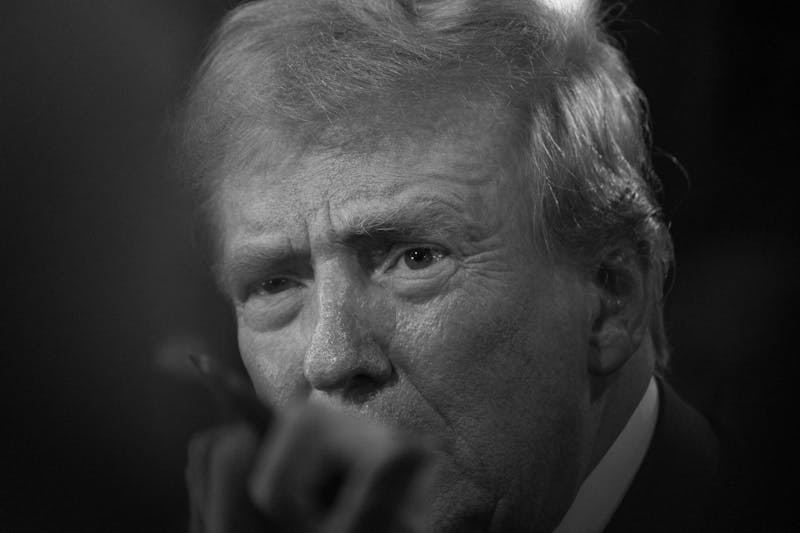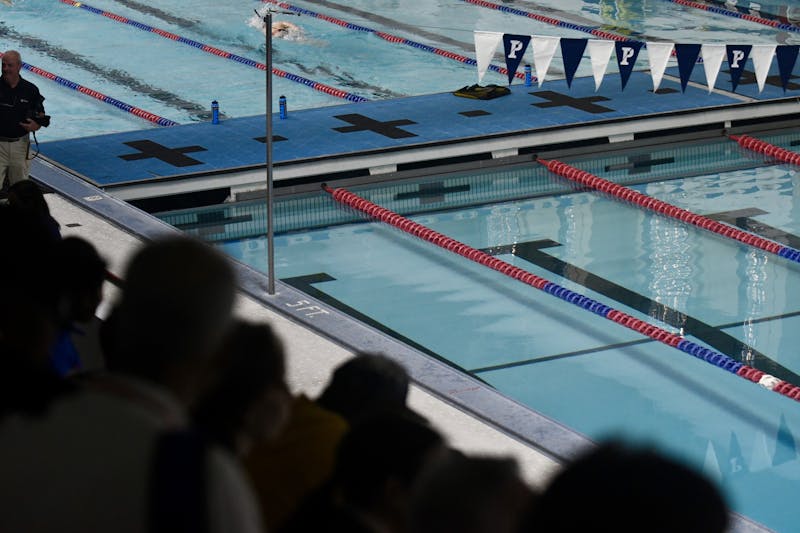They could have gone to the Philadelphia Police Department and dealt with more high-profile issues. Or perhaps they could have stayed out of town and enjoyed the relative peace of a sparsely populated suburb. Instead, the careers of 104 police officers took them in another direction -- straight off the Schuylkill Expressway and into the University of Pennsylvania Police Department, a world of policing where traffic patrols meet move-in day and burglary arrests share time with Spring Fling. Last week, The Daily Pennsylvanian's crime reporter spent a few nights riding along with three members of the Penn Police -- Sgt. Margaret O'Malley, Sgt. John Newton and Lt. Tom Messner -- patrolling the streets of West Philadelphia. Though he encountered no hardened criminals and posted no arrests, he did get a glimpse into the often-scrutinized UPPD and the men and women whose job it is to serve and protect. Peg O'Malley isn't your typical cop. As she patrols the streets during her 3 p.m. to 11 p.m. shift, wearing the same bulletproof vest and carrying the same 25-lb. gun belt as all of the other officers in the UPPD, O'Malley looks no different than any other Penn police officer on the beat. But still, O'Malley is different from the majority of her fellow police officers in at least one category. She's a woman. And in a department where only 16 of 104 sworn officers are female, one could reasonably surmise that she's met one or two gender-related challenges along the way. But that just hasn't been the case, says the 38-year old, red-haired patrol supervisor, who's been with the force for nine years. "I was treated better here at the beginning than I was when I started [as a part-time officer] in Delaware County," says O'Malley, her eyes on the road, as we start our patrol eastward on Chestnut Street. "When I was there, I was one of two women and they wanted nothing to do with me," she adds. "When I came here, the guys were great, and I had no problems at all." Shifting her attention periodically between our conversation and the garbled messages coming over the dispatch radio, O'Malley -- who has received five departmental commendations since she came to Penn in 1991 -- discusses how the department has changed over the years. "When I first came here, we had robberies like every night," she says as we turn onto 38th Street. "Now, I can't remember the last time we had a robbery on this shift. We really have our stuff together here." But despite the obvious devotion to the job, O'Malley is not without her criticisms of the force. Her work as an officer has exposed her to an enormously broad spectrum of people -- from prospective students to learned faculty, foreign dignitaries to panhandlers on the street -- and she has decided opinions about most of them. Tonight, the response is sparked by seeing two men panhandling outside the 7-Eleven on Powelton Avenue. One of the men, with whom O'Malley strikes up a brief conversation, is well known around the neighborhood for his panhandling and his physical condition -- he is HIV-positive. "My feeling is that Penn just doesn't do enough [for the homeless]," she explains later. "I mean, it's an educational institution. Can't there be some sort of program to bring these people in and teach them job skills, even if it's just to get them off the streets?" Sgt. John Newton didn't become a cop to fulfill a childhood dream. He came to Penn, in fact, with the same basic motive as much of the University community -- to further his education. "One of the main motivating factors that brought me here was the opportunity to complete my master's, since that's one of the benefits of working at Penn," says the 48-year old Newton, as we start our patrol down 40th Street. "But I've been here 10 years and I still haven't gotten it." Newton -- a patrol supervisor with almost three years' experience as a sergeant -- is tall with an easy-going disposition and a laugh that rings out as he tells stories from a long career in campus policing. With few calls coming over the radio, we have the chance to discuss one of Newton's favorite subjects -- the growing role of the UPPD in city law enforcement. "I'll put us on par with a lot of departments," he says. "We exceed a lot of departments in terms of their quality and their education." He adds that University Police are even beginning to overcome an obstacle that has plagued them for years: the perception that they're little more than glorified security guards. "I think that's changing," Newton says as he tries to edge the patrol car around a truck parked on the sidewalk of the already-cramped 3900 block of Delancey Street. "It's becoming more and more obvious to [other departments] that we're a real police department and we can handle things just as well as anyone." Calling for another officer to ticket the truck, Newton carefully backs up the cruiser and heads off to check out what's happening elsewhere on campus. Just minutes later, a call comes over the radio asking for help at the scene we just left. Returning to the scene of the "offense," we find two enraged men, both screaming at a pair of junior patrol officers and demanding the ticket be rescinded. "Sir, you'll just have to tell your case to the judge," Newton tells the men, all the while keeping his cool. "Fortunately, we don't run into a lot of guys like that," Newton remarks as we turn the corner onto 40th Street. "We still get the occasional 'Wait a minute! You can't give me a ticket -- you're just University Police!' but then we have to tell them, 'Well, this isn't a University ticket.'" Lt. Tom Messner looks like a police officer. With dark hair, an athletic build and a steely countenance, the 38-year-old Messner is the perfect officer to be leading a patrol at 11:30 on a Friday night. Friday nights, after all, are for parties. As we make our way around the neighborhood and spot several groups of students on their way out for the night, Messner -- a 17-year veteran of the UPPD who is one of three Penn shift commanders -- is quick to share his views on the behavior of the 18-to-23-year-old population that makes up so much of his patrol area. "I'm sure the students don't view themselves this way, but they're really a high concentration of victims," Messner says as we turn into a residential area. "They're more affluent than the rest of the neighborhood, and the criminals see the transient population as an easy opportunity." But beyond their natural vulnerabilities, Messner finds little fault with most of the student body. "I'd say we don't have a problem with 90 percent of the students," he says. "I have run across a few of them who've acted like jerks." One of the most defining -- and often controversial -- elements in the police-student relationship, he adds, is alcohol, because it has a lot to do with how students respond when approached by police officers. "Most students understand the alcohol policy," he says, adding that for the rest, "It all depends on whether or not they're sober at the time, or whether we're breaking up the party they're enjoying." Just as he finishes the sentence, he notices a familiar sight directly in the beam of his headlights at the intersection of 41st and Locust streets. Two young men are carrying a keg of beer into an off-campus house. It's not a violation of any University regulations, but the house is familiar to Messner as one where parties get out of hand fast. He stops the car -- spotlight focused on the two young men -- right in the middle of 41st Street and heads out to confront them. After a short confrontation, he gets back in the car, leaving them with a strong warning. "They told me they paid these [underage] guys to carry the keg for them," Messner says as we drive away minutes later. "Do you believe that?"
The Daily Pennsylvanian is an independent, student-run newspaper. Please consider making a donation to support the coverage that shapes the University. Your generosity ensures a future of strong journalism at Penn.
DonatePlease note All comments are eligible for publication in The Daily Pennsylvanian.







